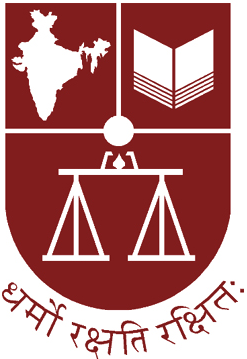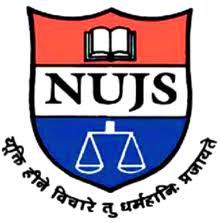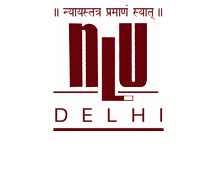Law Admissions in India
Law, also known as “Legal studies” is one of the promising streams for a successful career that deals with the various issues relevant to our society. The courses of Law are very popular and are offered by various private and government colleges and universities in India. In today’s era, the study of Law is total sum of highly organized systems, institutions and subjects.
Basically, one can pursue his or her study in various law courses such as LL.B (Bachelor of legislative law), integrated LL.B, LL.M (Master of legislative law) and doctoral courses. LLB is an undergraduate degree that covers core specializations and mainly focuses on Criminal Law, Contract Law, Constitutional/Administrative Law, Equity and Trusts, land Law, Tort Law and European law. In India, one can appear in entrance exams of Law for getting admission in Law college/university to become a professional Law Graduate.
The entrance exams for Law are organized at national as well as state level such as CLAT (Common Law Admission test), AILET (All India Law Entrance test), and LSAT (Law School Admission Test). Some of the universities usually conduct their own entrance exam (online/offline) for Law admissions – APLAWCET, MHCETLAW, TSLAWCET etc. Some universities offer admission to the candidates on the basis of their marks in 12th standard.
Law Colleges and Universities in India
There are more than 500 institutes in India imparting education in various Law Courses. National Law School of India University (NLSIU) has been ranked as the best law college in India with a total score of 78.66. NLSIU Bangalore is closely followed by NLU Delhi (74.02 score) and NALSAR University of Law (73.12 score) which have secured Rank 2 and Rank 3, respectively.
Top Law Colleges/Universities in India according to NIRF Ranking (2020)



Law Institutes in North India
There are many colleges teaching law in North India. Some of the popular ones are listed here:
Best Government Law Universities and Colleges in India
Private Law Institutes in India
There are plenty of private law colleges in India. Some of the popular ones are listed here:
Law Courses
To pursue a Law degree in India, one can opt for following courses:
- Three years course with graduation (LL.B or its equivalent degree from a recognized college/university with minimum 55% marks) as the basic eligibility.
- Five years integrated course with 10+2 with minimum 45% marks as the basic eligibility
- BA LLB (Bachelor of Arts and Bachelor of Legislative Law)
- BBA LLB (Bachelor of Business Administration & Bachelor of Legislative Law)
- BSc LLB (Bachelor of Science & Bachelor of Legislative Law)
- Bcom LLB (Bachelor of Commerce and Bachelor of Legislative Law)
- BLS LLB (Bachelor of Legal Science & Bachelor of Legislative Law)
Note:
- Moreover, there is no upper age limit to appear in Law entrance exam.
- Candidates studying in final year of qualifying exam are also eligible to register for Law admission test.
Law Entrance Exams in India
Law is one of the most popular streams in India, which students like to join after class 12, the others being medicine and engineering. LLB or bachelor of law is mostly a five-year duration course in India, but is also available as a three-year course. Law entrance exams are either at the national level or are conducted by various universities and institutions of the country. Students can gain admission all law institutions in India through entrance exams conducted by them.
Popular Law Entrance Exams in India
| Exams | Conducting Bodies | Application period | Courses offered |
| CLAT (Common Law Admission Test) | (In 2014) Gujarat National Law University, Gandhinagar | January-March | B.A. LLB, B.Sc. LLB, BBA LLB, B.SW. LLB, B.Com. LLB (Hons) degree |
| AILET (All India Law Entrance Test) | National Law University, Delhi | March-April | B.A. LLB, LLM, PhD |
| LSAT (Law School Admission Test) India | Law School Admission Council (LSAC) | November- April | LLB, LLM |
| DU law entrance exam | Faculty of Law, Delhi University | March- April | LLB, LLM, MCL, PhD, DCL |
| AMU law entrance exam | Aligarh Muslim University | February-March | B.A. LLB, LLM |
| Law entrance exam | Christ University | December- April | B.A. LLB, BBA LLB, LLM, MPhil in Law, PhD |
| SET (Symbiosis Entrance Test) | Symbiosis Law School | April | LLB |
| BVP CET | Bharati Vidyapeeth University, Pune | March- June | BBA LLB, B.A. LLB, LLB, BSL LLB, LLM |
| IPU CET | Indraprasth University, New Delhi | March-April | LLB, LLM |
| LAWCET (Law Common Entrance Test) | (In 2014) Sri Venkateswara University, Tirupati | March- April | LLB, LLM |
| KLSAT (Kerela Law School Admission test) | KIIT University | December- March | BA LLB, BBA LLB, BSc LLB, LLM |
| ILSAT (Indian Society of Law Admission Test) | ICFAI University, Dehradun | May-June | BA LLB, BBM LLB |
Entrance Exams for 3 year LLB after Graduation
Eligibility Criteria:
- Basically a minimum of 45% aggregated marks in graduation for general category (40% for reserved categories)
- But universities like Delhi University (DU) and Banaras Hindu University (BHU) requires minimum of 50% aggregated marks in graduation while
- Universities like Kurukshetra University (KUK), MDU require only 45% aggregated marks in graduation.
- DU LLB- Delhi University Law Entrance Exam is a national level entrance exam conducted by Faculty of Law department, Delhi University for admissions to 3 year law programs at three law centers of the university namely Campus Law Centre, Law Centre-I and Law Centre-II.
- BHU LLB - Banaras Hindu University Law Entrance Examination is conducted by Banaras Hindu University for admission to three year law programs in Law School, Faculty of Law.
- LSAT INDIA - Law School Admission Test is the standardized test of reading and verbal reasoning skills, conducted four times in a year for admissions in LLB and LLM programs. The test is held in offline mode. Over 40 law schools in India consider LSAT score for admissions.
- Panjab University- Panjab University, Chandigarh conducts PU Law entrance exam for the admission to 3 year law programs offered by it.
- AP LAWCET- Andhra Pradesh Law Common Entrance Test (AP LAWCET)
- Kurukshetra University – Conducted by Department of Law, Kurukshetra University
- MD University – Conducted by department of law, MDU University.
- IIT Kharagpur (Own Test & LSAT-India)- Conducted for admission in Rajeev Gandhi School of Intellectual Property Law, IIT Kharagpur)
Important Note:
- As per the recent directive by Bar Council of India, applicants who have passed 10+2 and have a graduation degree through distance learning or correspondence mode, will also be eligible for admission to the integrated five-year or three year LLB course.
- However, applicants who have obtained 10+2 or graduation or post-graduation through open universities system directly without having any basic qualifications for pursuing such studies are not eligible for admission in law courses.
Entrance Exams for 5 years integrated LLB
Eligibility Criteria:
- A minimum of 50% aggregated marks in 12th board examination for Undergraduate program (LLB) and at least 55% aggregated marks for postgraduate program (LLM) ( For general/OBC/ Specially abled persons and other categories)
- A minimum of 45% aggregated marks for UG program and at least 50% marks for postgraduate program in 12th board exam ( For SC/ST category)
Details of a few Entrance Exams:
- CLAT- Commom Law Admission Test: It is an all India entrance examination for the aspirants willing to get admission to undergraduate (LLB) - (CLAT UG) and postgraduate law degree programmes (LLM) - (CLAT PG). It is a national level exam conducted by 18 National Law Universities (NLUs).
Note: Other than 18 NLUs, the CLAT score is also considered by 43 other colleges and a PSU. CLAT exam is held through online mode (computer based)
- LSAT - Law School Admission Test is the standardized test of reading and verbal reasoning skills, conducted four times in a year for admissions in LLB and LLM programs. The test is held in offline mode. Over 40 law schools in India consider LSAT score for admissions.
LSAT scores are accepted by top institutes like:
- Rajiv Gandhi School of Intellectual Property Law
- IIT Kharagpur Law School
- Galgotia University Law School
- The Jindal Global Law School
- UPES Dehradun
- SRM University
- Amity Law School
- and many more.
- AILET- All India Law Entrance Test is one of the most popular entrance exam organized by National Law University (NLU), Delhi for admissions to BALLB and LLM programs in NLU and its affiliated institutions. The NLU Delhi law entrance exam is conducted offline, for which law aspirants seeking can apply.
- SET- Symbiosis Entrance Test is a university level common entrance exam for undergraduate law admissions into Symbiosis Law Schools situated in Pune, Noida and Hyderabad. SET is managed by the Symbiosis International University that offers around 300 seats for five years integrated LLB admissions.
- IPU CET- Indraprastha University Common Entrance Test Law is a university level law exam conducted by Guru Gobind Singh Indraprashta University (GGSIPU) for admission to five-year integrated law programs (BBA LLB and BA LLB). This law exam is conducted in offline mode and eight colleges affiliated to GGSIPU participate for admissions using this IPU-CET law exam.
- CUSAT- Cochin University of science and Technology (CUSAT) conduct national level entrance exam for the admission in LLB, BBA LLB, B. Com LLB and LLM.
- CULEE- Christ University Law Entrance Exam is conducted by Christ university, Bangalore for admissions in 5-year integrated law programs (BA LLB and BBA LLB) to its affiliated institute “School of Legal Studies, Cochin”.
- BVP CET Law – Bharti Vidyapeeth Common Entrance Test Law exam is conducted by Bharti Vidyapeeth Deemed University, Pune for admissions in various law programs (LLB, BA LLB, BBA LLB and LLM) in the four law colleges (New Law College, Pune) affiliated to this university. The test is conducted in paper pencil mode.
- PU UG LAW- Panjab University, Chandigarh conducts PU UG Law entrance exam for the admission to 5 year integrated law courses (BA LLB and B. Com LLB (Hons.)) offered by it.
- AMU LAW- Aligarh Muslim University conducts a university level exam for the law courses offered by the university (BA LLB and LLM).
- AP LAWCET- Andhra Pradesh Law Common Entrance Test (AP LAWCET) is a state level entrance exam for law programs and is conducted by Sri Krishnadevaraya University, Anantapur on behalf of AP State Council of Higher Education, Hyderabad. This test aims admissions to LLB, LLB (Hons.) BBA LLB, BA LLB, B. Com LLB, BA LLB (Hons.).
- KIIT LAW- Kalinga Institute of Industrial Technology Entrance Exam (KIITEE) is organized by KIIT University, Odisha. It is a university level entrance exam for admission into BA LLB, BBA LLB, BSC LLB, five year integrated law programmes in Kalinga Law School.
- AIL LET- Army Institute of Law entrance test exam is conducted by Army Institute of Law, Mohali, Punjab for admission into BA LLB (Hons.) and LLM courses of law. This Institute is affiliated to The Punjabi University, Patiala.
Other Universities in India offering Law admissions
- Himachal Pradesh University (HPU), Institute of Legal studies
- Dibrugarh University
- Bennett University
- Guru Ghasidas University, Bilaspur
- NALSAR University of Law, Hyderabad
- ALCAT- Alliance Common Law Admission Test by Alliance University, Bangalore
- ICFAI University, Dehradun
- Calcutta University
Counselling details for a few Law Entrance Exams
CLAT Counselling is usually conducted in the second week of June each year. Candidates need to attend the counselling in online mode. Candidates whose name will appear in the merit will be issued call letters to attend the Counselling as a medium to seek admissions into 20 NLUs (National Law Universities) participating in CLAT.
Process for CLAT Counselling:
Round-I
- Candidates will be required to login to their respective CLAT accounts
- View the NLUs allotted to them according to the seat allotment list (according to the merit list and preferred choices) in Round-I of counseling.
- The fees, an amount of Rs. 50,000 usually needs to be deposited, as counselling fee in the stipulated time.
Note: Those who fail to deposit the fees in the stipulated time may lose their allotted NLU seat. Admission opportunity to NLU and CLAT candidature even as their names will be dropped from the CLAT merit list.
Round-II
- After CLAT counselling fees have been deposited
- Second seat allotment list is issued, mentioning the names who have locked their NLU seats and the list of candidates who are provisionally selected for the second round of counselling against the vacant seats made by the dropped out candidates of the first counselling round. The list will also indicate the candidates who have been upgraded/ shifted to a higher NLU as per the vacancy.
- The new candidates selected in the second indicative counselling list, will need to pay the counselling fees in stipulated time. However, those who have been upgraded need not to re-deposit the fee.
Note: Similar to the first seat allotment in round I, candidates who fail to deposit the counselling fee within the time limit will lose their allotted NLU admissions and their names will be dropped from the merit list of CLAT.
Round-III
Important Note about Withdrawal
- Before publishing third indicative list, the CLAT committee will provide an option of withdrawal to all those candidates who have been allotted NLUs in the previous CLAT counselling rounds.
- Those who wish to withdraw from CLAT admissions will need to exercise the ‘Withdrawal’ option after which an amount will be credited to their registered bank account after deducting Rs.10,000 from deposited counselling fees.
- However, those who withdraw their allotted NLU seats after the last date of withdrawal will not be liable to receive any amount and it’ll result in loss of entire counselling fee.
- The third and the last indicative list of CLAT counselling mentioning all those candidates who have been allotted NLUs for a final term is published.
- Candidates as per the final seat allotment list of CLAT counselling will have to deposit the entire fees at their respective allotted NLUs.
- The candidates are required to report at their respective NLUs with their relevant certificate/ documents required for the CLAT admission formalities.
Caution:
- It must be noted that the candidates who do not meet CLAT eligibility criteria will not be offered admissions to NLUs.
- These candidates will automatically lose their candidature as well as counselling fee amount of Rs. 50,000 and are not permitted to claim for that, under any circumstances.
- So, it is always advisable to read the eligibility criteria of CLAT before proceeding to any step of admission.
Documents Required
- CLAT Application Form
- CLAT Admit Card
- CLAT Scorecard
- Marksheets of 10th and 12th
- Specially-abled certificate (If applicable)
- Caste certificate (If applicable)
- NRI Certificate (If applicable)
- Domicile Certificate (If applicable)
- Sponsored NRI Certificate (If applicable)
AIL LET (Army Institute of Law entrance test)
Eligibility
- A candidate who has passed 10+2 examination from Punjab School Education Board or any other equivalent examination recognized as such by the Punjabi University, Patiala, securing at least 45% marks.
- The applicants who have obtained 10+2 through open university systems directly, without having any basic qualifications for pursuing such studies, are not eligible for admission in Law Courses.
- Candidates passing the compartment papers of qualifying exam of 10 + 2 subsequently shall not be eligible for admission even if a seat is available.
- In case an applicant has passed a qualifying examination from Board/University whose degree has not been notified as equivalent to the Punjabi University, Patiala, he/she will have to produce the eligibility certificate from Punjabi University, Patiala at the time of the interview, failing which his / her candidature shall not be considered.
- Candidates whose declaration of results is delayed should apply well in time to the concerned Board of examination to forward a confidential result directly to Principal, Army Institute of Law, Mohali, Punjab. The responsibility to ensure its timely dispatch will be that of the candidate. Delayed receipt of result shall render the candidate ineligible for admission.
Admission Process
- Admission to 60 seats for wards of army personnel will be done through entrance test (Online LET) conducted by AIL under the aegis of AWES.
- Admission to 04 seats in the All India Category will also through the same entrance test.
- Candidates for both Army and All India Category will be called for counselling as per merit in the written exam. Admission will be granted only if the candidate is found eligible on the day of counselling.
- Admission to 16 seats in the Punjab Category will be based on 10+2 merits, drawn up by the nominated university as per the notification issued by Govt. of Punjab.
Distribution of Seats
- Total: 80
- Wards of Army Personnel: 60
- Punjab Resident Civil Category: 16
- All India Civil Categories: 04
DU LLB (Delhi University Law Entrance Exam)
Delhi University will conduct DU LLB Counselling in the fourth week of July each year. Candidates will be required to appear in the counselling of DU LLB in offline mode. Candidates whose name appear in the merit list of DU LLB, will be issued call letters to attend the DU LLB Counselling as a way to seek admissions into undergraduate law program offered by Delhi University.
There will be a number of processes included in the DU LLB counselling namely:
- Registration,
- Collecting the admission letter,
- Remitting the counselling fee
- Submitting the original documents.
Note: All the submissions made by the candidates should be done before the last date of counselling for hassle-free correspondence of admission procedure.
Documents required at the time of Counselling
- 10th and 12th mark-sheets of qualifying degree with the xerox copy of the same
- DU LLB Admit Card with a xerox copy of the same
- Date of birth proof and a xerox copy of the same
- Certificate of graduation and post-graduation degree and a xerox copy of the same
- DU LLB Merit List/Rank card
- Character Certificate from (qualifying institute)
- DU LLB Application Form
- Cast Certificate (if applicable)
- PwD Certificate (if applicable)
- College Leaving Certificate
Law Courses through Distance Education
Distance Learning open fresh opportunities to pursue higher education without any constraint of location and time. Several Law Schools and Universities offer law courses through distance learning and online mode.
Distance Education Courses in Law
- LLB offered by University of Kashmir and Guru Nanak Dev University.
- Bachelor courses - (BGL, BAL, BBL) offered by Annamalai University & Madurai Kamraj University.
- LLM offered by Acharya Nagarjuna University, Bharati Vidyapeeth, Global Open University, Kakatiya University, Karnataka State Open University, Kurukshetra University, Kuvempu University, Madhya Pradesh Bhoj Open University, Sri Krishnadevaraya University, Sri Padmavati Mahila Visvavidyalayam, Sri Venkateswara University and Uttaranchal Open University.
- Diploma and PG Diploma offered by Alagappa University, Annamalai University, Bangalore University, University of Hyderabad, University of Madras, Madurai Kamaraj University, Mahatma Gandhi University, National Law School of India University and Amity University.
Top 5 universities offering Law distance learning courses
- IGNOU
- Annamalai University
- National Law School of India University
- Madurai Kamaraj University
- Guru Nanak Dev University
Note: Because Bar Council of India (which regulates lawyer’s profession) does not recognize any distance education degree for LLB. Therefore, even if you managed to obtain one, you will not be able to practice in court with that degree. In simple words you can't become lawyer doing LLB through distance or correspondence mode.
Tips for preparing for Law Entrance Exams
- Practice of English / vocabulary
- Reasoning exercises on a daily basis
- Solve all of the previous years' Entrance papers
- Join Law Exam coaching classes in your city.
- Aim to improve the following:
- English including comprehension
- General knowledge/current affairs
- Elementary Maths
- Legal aptitude
- Logical reasoning
Synopsis of Law as a career in India
| Name of Courses | B.A. LLB, B.Sc. LLB, BBA LLB, B.SW. LLB, B.Com. LLB (Hons) degree |
| Frequency of Entrance Exams | Once a Year |
| Conducted by | Boards, Universities |
| Exam Mode | Online, Offline |
| Exam Dates | Spread over a few weeks; usually midyear |
| Exam Announcement | Dec to Mar |
| Course | Three to five years |
| Fees | 30,000 to 3,00,000 per year |








